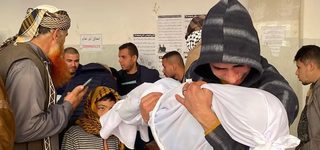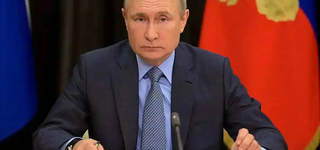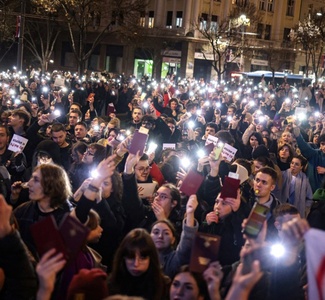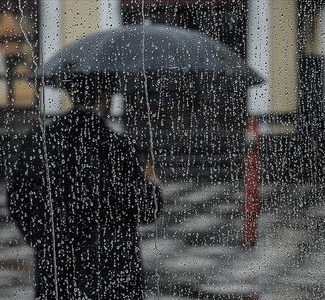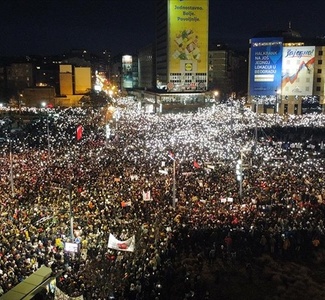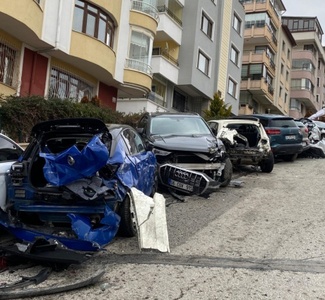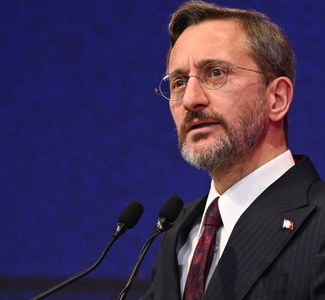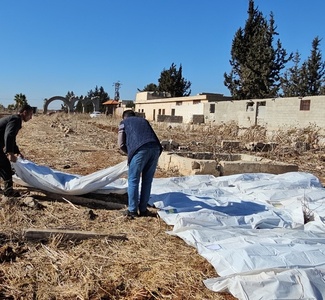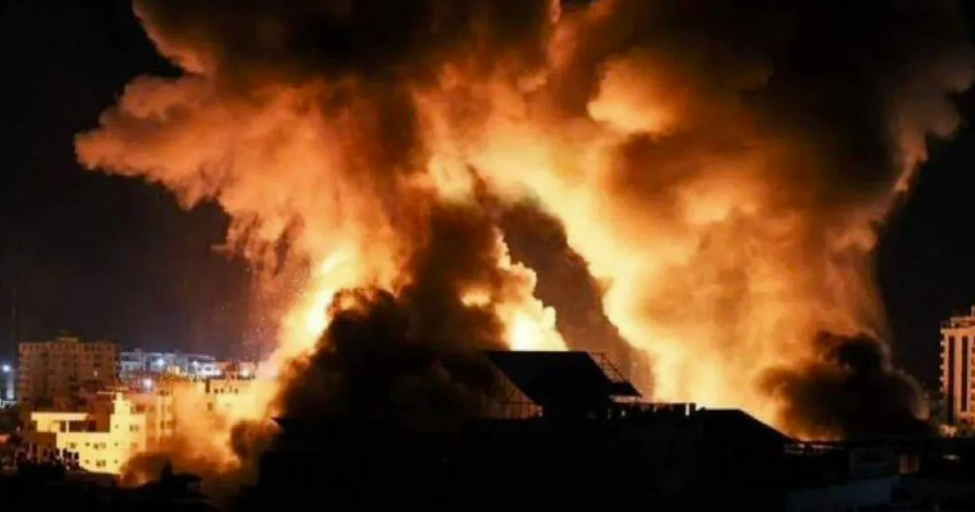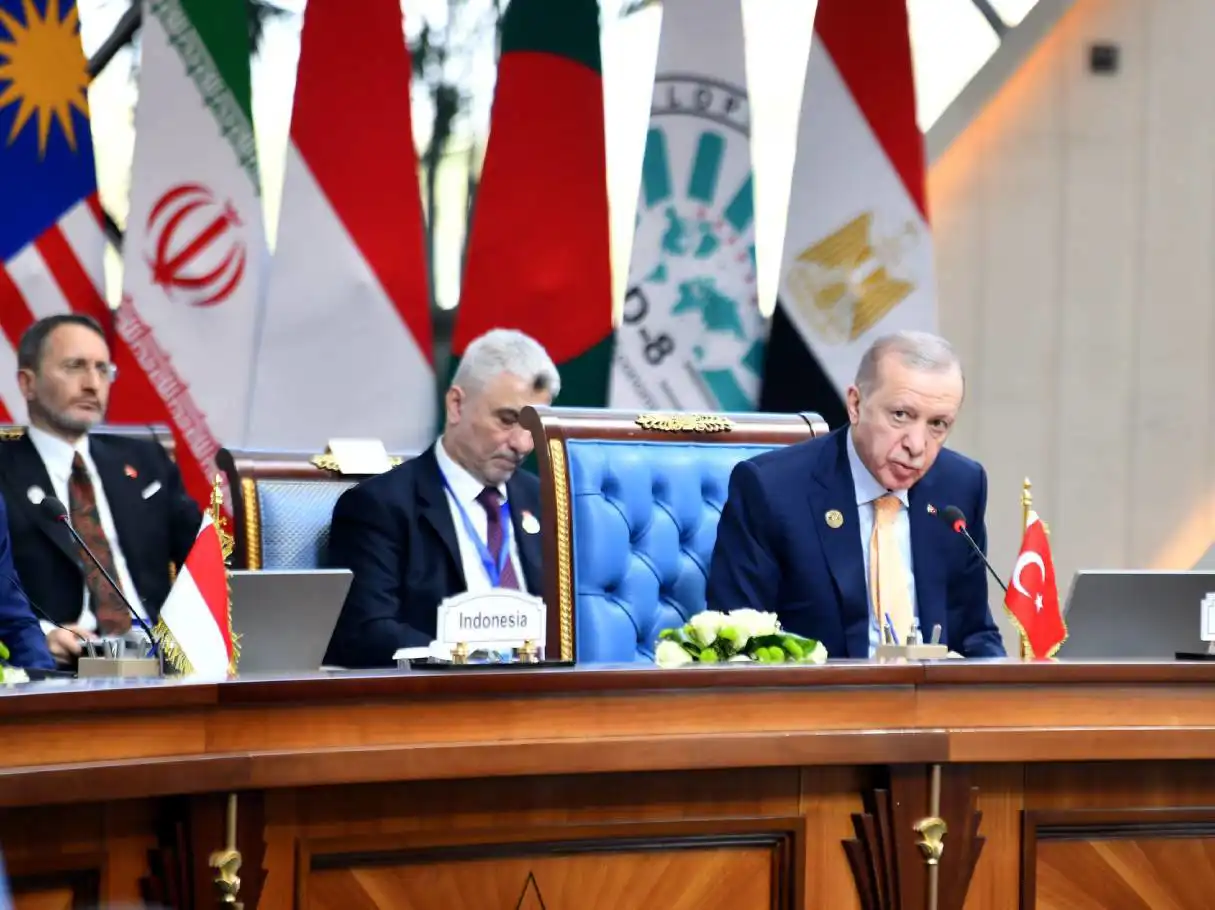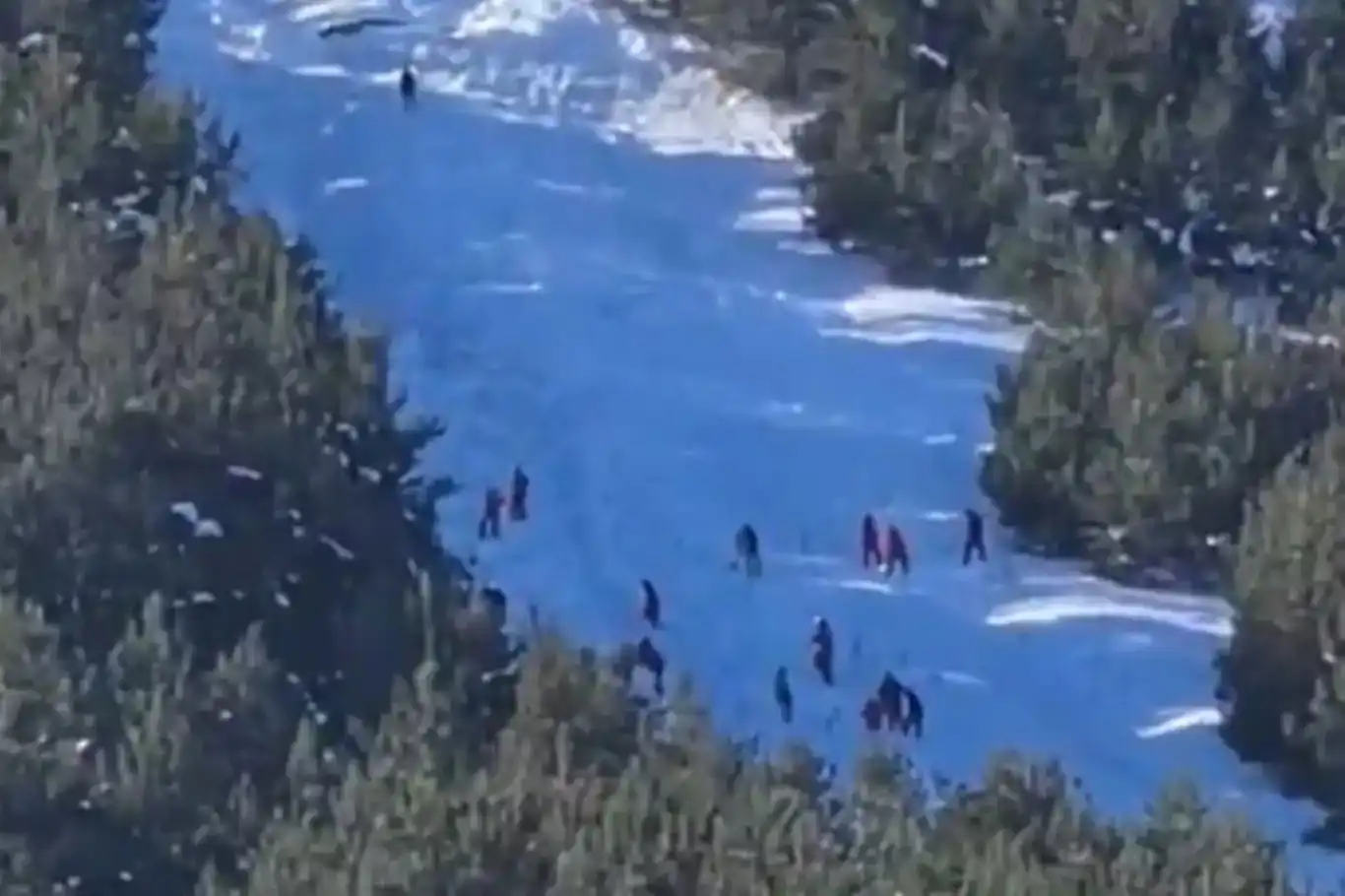Hamas marks 32nd anniversary of its founding
Thousands of people attended the celebrations, in which various events were held to mark the anniversary of the founding of Hamas.

 Google News'te Doğruhaber'e abone olun.
Google News'te Doğruhaber'e abone olun. In a statement issued on its 32nd founding anniversary, Hamas said that its efforts to liberate Palestinian prisoners from Israeli jails and confront recent attempts to normalize Arab relations with the occupation would remain high on its list of priorities.
The statement described Hamas’s emergence in 1987 as "a culmination of a long history of moral, patriotic and revolutionary mobilization" and "a milestone in the history of the Palestinian national struggle.
Its statement also outlined the Movement’s achievements, throughout its history, in resisting the Israeli occupation militarily and politically.
"Islamic Resistance Movement"
Hamas was founded in 1987, soon after the First Intifada broke out, as an offshoot of the Muslim Brotherhood Co-founder Sheikh Ahmed Yassin stated in 1987. The Hamas Charter affirmed in 1988, that Hamas was founded to liberate Palestine, including so-called israel, from zionist occupation and to establish an Islamic State in the area that is now Israel, the West Bank and the Gaza Strip. The group has stated that it may accept a 10-year truce if zionist gangs withdraw to the 1967 borders and allows Palestinian refugees from 1948, including their descendants, to return to their homeland, although clarifying that this does not mean recognition of zionist state or the end of the conflict.
Hamas released its first statement on 14 December 1987, just five days after the start of the first intifada. The intifada was triggered when a zionist lorry driver ran over a number of Palestinian laborers east of Gaza city while they were returning home after a long working day in occupied lands, killing four and wounding 10 others.
Its spiritual founder Sheikh Ahmed Yassin, who was a quadriplegic, was assassinated by a zionists' helicopter on 22 March 2004. Terrorist Ariel Sharon directly supervised his assassination.
As soon as it was founded, Hamas ordered its members and supporters across the occupied territories to be extensively involved in the intifada. Hamas had deep roots among the Palestinians it made with two decades of organized charity work that included health and education services, as well as sports and cultural activities.
During that period, between 1967 and 1987, Hamas established a number of multi-branch social charities in Gaza and the West Bank that run schools. In addition, it established one major university in Gaza.
The PLO, which includes all the Palestinian factions except Hamas and Islamic Jihad, had been involved in secret peace talks with zionist gangs dating back to 1972. According to what the current Fatah and PLO leader Mahmoud Abbas has said, Israel thought about terminating Hamas in order to stop the first intifada. It arrested all Hamas leaders, including Yassin, but it found that Hamas had alternative formations that led the movement and kept popular resistance active.
The zionist occupation escalated its crackdown on popular resistance, pushing the Palestinians to escalate and use arms. Hamas established its military wing Al-Qassam Brigades, which started to target Palestinian collaborators and zionist soldiers. With the zionists' escalation increasing, the Palestinian resistance widened its scale of targets until it started to carry out attacks in the heart of zionists' cities.
In 1996, Hamas refused to take part in the first Palestinian parliamentary elections, arguing that the Palestinian Authority, which was established after the Oslo Peace Accords between the PLO and zionist gangs, is absurd. Citing the zionist gangs' failure to fulfill its pledges made through Oslo and the escalation of settlement building, Hamas believed that the peace process was only made to give zionist gangs time to strengthen its occupation. Therefore, it continued its resistance, making itself a target of the PA, which violently cracked down on its leaders, members and resistance infrastructure.
Zionist gangs' and PA actions on the ground reinforced Hamas’ belief that Oslo was not meant to make peace. On 25 February 1994, the zionist settler Baruch Goldstein broke into Al-Ibrahimi Mosque and opened fire on Palestinian worshipers during Al-Fajr prayer, killing 29 and wounding over 1,245 others, triggering wide-scale counter resistance attacks by Hamas, which started to use suicide bombings in response to increasing zionist gangs' violence and the silence of the PA.
Meanwhile, on 19 November 1994, the PA security services stormed Felesteen Mosque in the center of Gaza City and opened fire on worshippers during Friday prayers, killing more than a dozen and wounding over 100 others. The PA attack aimed at preventing Hamas from organizing a popular funeral for its member Naser Sallouha, who had been killed by the PA the previous day. Hamas did not respond and stressed it would never aim its gun at any Palestinian whatever he does.
In 1996, Hamas was subject to the harshest crackdown in its history as the PA arrested hundreds of its leaders and members and destroyed all of its resistance infrastructure. I have heard confirmed reports stressing that American and zionst gangs' intelligence officers investigated Hamas members and tortured them inside PA prisons. In fact, the PA succeeded in dismantling Hamas’ organizational structure, but in October 1997, zionist gangs released Ahmed Yassin in return for the release of two Mossad agents who failed to assassinate the Chief of Hamas’ Political Bureau in Amman Khalid Mashal.
When the second intifada started, Hamas was heavily involved in the armed resistance and started to manufacture rockets and RPGs and recently drones, causing much damage to the zionist occupation.
In a dramatic change in policy, Hamas agreed to take part in the parliamentary elections in 2006. Hamas won the elections and formed the government alone after the other Palestinian factions rejected joining a coalition government headed by the Islamic movement.
Fatah, zionist gangs, the US and most of the Western and Arab countries rejected dealing with Hamas. Fatah and the PA caused security chaos, pushing Hamas to sweep them out of Gaza in June 2007, leading the PA to separate the Gaza Strip from the West Bank. The former has been controlled by Hamas since then and the latter controlled by the PA, which is dominated by Fatah and backed by zionist gangs and the international community.
Since then, zionist gangs have continued its violations against Palestinians. It carried out several offensives on Gaza, including three major ones, pushing Hamas to launch hundreds of rockets towards the zionist settlements and cities near Gaza. Over these years, Gaza has been under a strict zionists' siege that rendered the coastal enclave to be, according to many international reports, uninhabitable by 2020 due to the lack of clean water, severe shortage of electricity, lack of medicine and medical equipment at hospitals and severe unrepairable damage of infrastructure due to the zionists' attacks.
Hamas Spokesman Hazim Qasim said: "Hamas has been the protector of Palestinian principles and Palestinian rights. The news about a truce with Israel in return for a fraction of our rights is fake. Hamas is seeking a complete end to the zionists' siege and the improvement of the life of Palestinians in Gaza."
Regarding a long-term truce or a deal with zionists' gangs, he said: "Hamas does not reject transitional solutions. This was proposed by Hamas founder Sheikh Ahmed Yassin, who said: ‘Hamas would accept a long-term solution in return for a full zionists' withdrawal from the Palestinian territories occupied in 1967’."
He added: "Sheikh Yassin said: ‘The Palestinian freedom fighters [will] not lay down their arms before their aims are achieved.’ They are seeking solutions without conceding their rights," he said.
"We hope that the zionist occupation ends peacefully, but if not, we are still ready for it," he concluded, stressing: "This was the main Hamas principle laid down by Sheikh Yassin, who said: 'We feel sorry for any bloodshed. We feel sorry for killing even a cat. We feel sorry for killing any human, whether he is a Jew, a Christian or a Muslim, but we do not feel sorry for killing the one who comes to kill us or displace us from our homes. This is the legitimate resistance which is guaranteed by international law.'" (ILKHA)






























